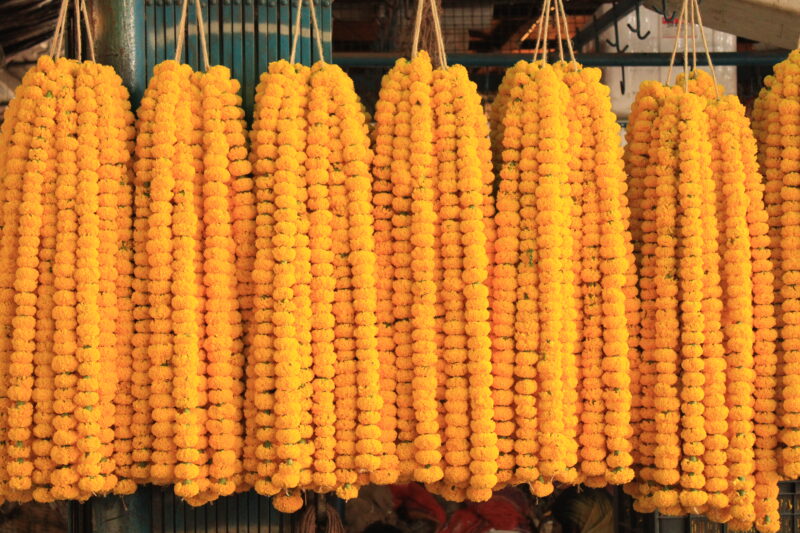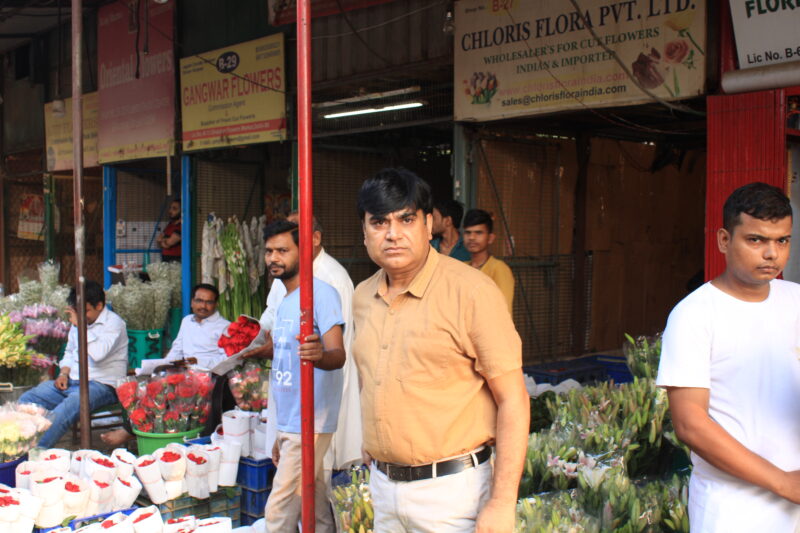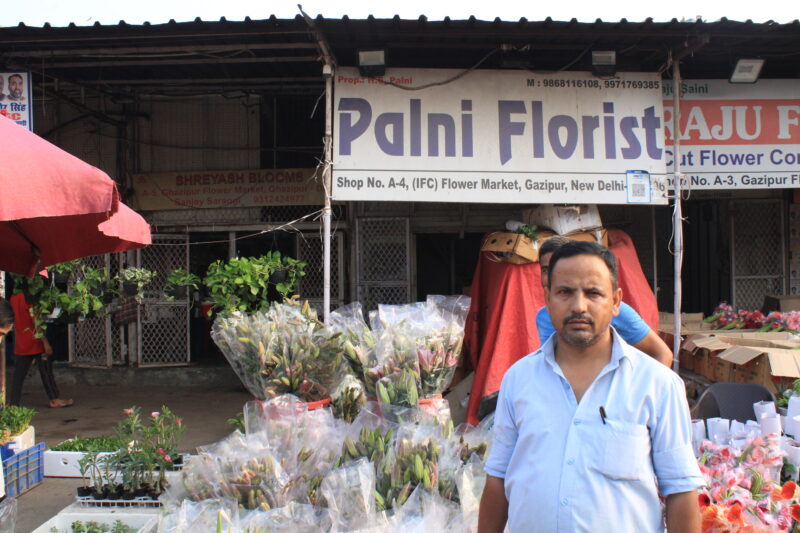One of the largest flower markets in the country, the wholesale flower market in Ghazipur is the hub for supplying a wide variety of flowers within the country along with those imported from Europe and Asia.
The redevelopment plan grandly announced by Delhi Agricultural Marketing Board at a cost of Rs 197 is supposed to prepare modern infrastructure, facilities and permanent shops to the owners of stalls at the Ghazipur flower market. But the vendors Patriot interviewed are focused not on the future but on the current sorry state of the market in the aftermath of the pandemic.

Three traditional flower markets in Delhi were relocated to Ghazipur. Most of the shopkeepers used to trade in Connaught Place, Chandni Chowk and Mehrauli: they were brought to Ghazipur with an assurance of developing a proper market.
This summer, most of the traders have been sitting idle awaiting customers. The fallout of the pandemic is visible in the diminished hustle-bustle and thinner crowds at the stalls. Overall, the picture is one of shopkeepers trying to make a living at a time of low demand, regardless of any facilities that could be called infrastructure.
One of the many sceptics Patriot came across is Praveen Kumar, ex-member of the Delhi Flower Market Committee (DFMC). He scoffs, “All this is a farce. We have been hearing about the redevelopment plan since 2011, now it’s 2022. Do you see any development here? I’ve been a member and I know what happens.”
Kumar adds in a sarcastic tone, “These redevelopment plans make great headlines but on the ground, it’s just zero.” He says many of the vendors thought that once the market is redeveloped, they would be able to hand over swanky showrooms to the next generation. During the pandemic, many in fact lost their business while others lost their lives.

Bucking this trend are cactus and marigold garlands, the latter offering a consistent income as they are widely used in temples and religious rituals.
Sanjay Saraogi, who sells a wide variety of cactus and other decorative plants in a corner of this vast flower market, says his customers are mostly individuals. Knowing that there won’t be many wholesale purchases, he starts his day at 4 am and stays on till 10 am.
As for marigolds, entire families including kids can be seen in the market making garlands.
Then there is Ramnath, who has been in this trade for the past 10 years. He mainly sells carnations sourced from Himachal Pradesh. According to him, ever since the market was closed down for five months during Covid-19, the business has been dull. Sales have still not gone back to normal even months after the relaxation of pandemic guidelines.
While the shop owners and vendors are uncertain about the redevelopment plan, Teg Singh, member of DFMC assured that the funds have arrived and the work will start very soon.
According to him, four-storey structures will be built with assured shops to all the existing shopkeepers.
Withering demand
Himachal and Bengaluru are the major suppliers for this wholesale market for flowers. However, orchids are mainly exported from Bangkok, for which traders are in direct contact with exporters.
“Earlier flowers used to come from Holland, now their market has developed. They have forged collaborations with other European countries to market the flowers there before sending to any other country”, says Mohammed Irshad.
He adds that they have to pay a small amount as rent to the government along with a 1% tax for sold flowers.
HS Palani, who has been in this trade for the past 30 years, says that his business is running at a loss. “Stocks remain unsold even after 3-4 days. I am selling at a reduced price, still, the bundles are not completely sold”, added Palani.

He further asserts that the weather is also playing a role in shrinking the business. Due to the rise in temperature, there are no weddings or events happening which adds to the struggle.
“It’ll be great for us if the redevelopment plan works out. When we were assigned plots there was nothing here, just barren land. We built all these sheds and stalls from our own pockets”, adds Palani.
Irshad’s brother Mohammed Jameel is also a vendor at the market. He mainly sells anthurium, rajni gandha, orchids among others. “When people don’t have food to eat, would they be bothered to buy flowers?” questions Jameel while explaining the current market scenario.
He further says, “Since most stock is not sold on the first day, we reduce the price but still our stock remains unsold. I am ready to reduce the price even further, still, the situation is not going to change.”
Praveen Kumar, who sells a wide variety of flowers including rose and lily, says that sales are desultory as most of his demand comes from luxury hotels, offices and event management companies. The requirements from hotels have reduced as most of the rich are out for their summer vacations. Nor are there many hotel guests these days.
“Fifty percent of the stock is sold on the first day, 20% the next day and the remaining 30 % is wasted”, said Kumar.
Along with the impact of the pandemic, the lack of events in June-July intensified the struggle of these vendors. He adds that apart from florists, event managers and rich people, nobody buys cut flowers.
Send comments to feedback@thepatriot.in
For more stories that cover the ongoings of Delhi NCR, follow us on:
Instagram: https://www.instagram.com/thepatriot_in/
Twitter: https://twitter.com/Patriot_Delhi
Facebook: https://www.facebook.com/Thepatriotnewsindia





